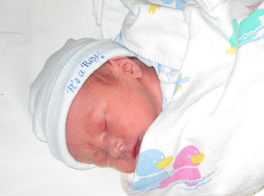For the past few days, I’ve been telling everybody about Fred. Instead of repeating myself, I thought I’d make a blog entry out of it.
Last week, Andy pointed to a series of YouTube videos about a character named Fred, writing:
LA Times on YouTube’s Fred — insanely popular with tweens, he has 242k subscribers and a sponsorship deal; here’s an interview.
Because I follow all of Andy’s links, I followed these. The LA Times article is fascinating because it describes how Fred may portend the arrival of truly egalitarian media. (This is a theme I explored in an interview yesterday with Scott Burns, a long-time newspaper columnist. We discussed how newspapers are dying and the web is allowing a sort of democratization of information providers. Though I interviewed Burns for my personal finance blog, there are vast portions of the conversation that aren’t about money. I may post them here.)
But the amazing thing about Fred isn’t that a random fourteen-year-old from Nebraska (Lucas Cruikshank) can rocket to internet celebrity with no traditional media coverage. No, the amazing thing about Fred is that he clearly illustrates some sort of generational divide. Here’s a recent episode:
Do you think that’s funny? Neither do I. But apparently kids love him. Seriously. They think he’s hilarious.
We were talking with Mike and Rhonda last night, and the women were expressing their bafflement over Italian Spider-Man. “It’s funny,” I said. Mike agreed. But Kris and Rhonda were unconvinced. This led to a discussion of humor, and how different people perceive it.
“I can usually see why something might be considered funny, even if I don’t think it is myself,” I said. “But this Fred thing. I don’t get it. There’s nothing funny about it at all.” Because my companions had never seen Fred, they didn’t get my meaning.
From the LA Times article:
If you’re past a certain age, Fred’s appeal is essentially inscrutable. His antics are Kryptonite for grown-ups, repelling any but the most vigorous attempts to watch an entire episode and keeping us in the dark about why kids seem to love him so much.
“They just think he’s the funniest thing ever,” said Valerie Moizel of the L.A.-based WOO ad agency, which found out about Fred after it conducted kid-centered focus groups for its ZipIt instant messaging product — which later showed up in Fred’s videos. “We watched them watch him — they fall on the floor hysterically laughing. They’re just mesmerized.”
And more than just the zaniness, it’s possible that kids are connecting to Fred on other levels too. He has parental, behavior and girl problems, so there’s a little something for everyone.
“The biggest draw is the subject matter,” Moizel added. “He really knows how to touch on things that are current and that teenagers deal with.”
What do I know? I’m just a middle-aged man. I wonder if my father felt the same way about Monty Python and the Holy Grail?
Curiously, I actually like some of the videos from JKL Productions, which features Lucas Cruikshank (a.k.a. Fred) and his twin cousins, John and Katie. This video of the trio dancing and lip-syncing to Hannah Montana is exactly the sort of thing I used to do with my friend Heather when I was in high school. It’s fun.
But Fred? I just don’t get Fred…


